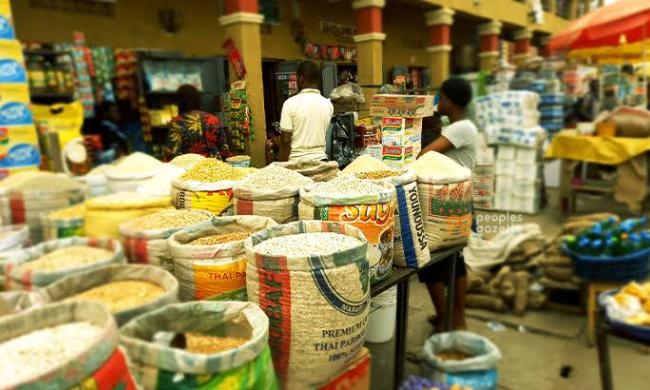
The Nigerian government, through the Federal Competition and Consumer Protection Commission (FCCPC), has granted traders and market stakeholders a one-month period to lower prices to reasonable levels.
This directive was issued by Mr. Tunji Bello, the newly appointed Executive Vice Chairman of the FCCPC, during a one-day stakeholders’ engagement on exploitative pricing held in Abuja on Thursday.
Bello emphasized that this move is in response to growing concerns about the affordability of essential goods, which has increasingly strained the finances of many Nigerian households.
The News Agency of Nigeria (NAN) reported that various market associations attended the event.
Bello explained that the meeting aimed to tackle the rising trend of unreasonable pricing of consumer goods and services and to address the unethical practices within market associations.
He highlighted a specific case from the Commission’s investigation: a fruit blender, branded Ninja, which retails for $89 (about N140,000) in a well-known supermarket in Texas, was being sold for N944,999 in a supermarket on Victoria Island, Lagos.
Bello questioned the justification for such a drastic price difference compared to the Texas market. He noted that unethical practices like price fixing were undermining the stability of the economy.
“Under Section 155, violators—whether individuals or corporate entities—face significant penalties, including hefty fines and imprisonment if convicted by the court,” Bello stated.
“This is meant to deter those involved in these illegal activities. However, our approach today is not punitive. I urge all stakeholders to act with patriotism and cooperation. In this spirit, we are offering a one-month moratorium (September) before the Commission begins strict enforcement,” he added.
Bello acknowledged that the government is aware of the concerns raised by market stakeholders.
“We have listened and understand that you have legitimate concerns. The government has a duty to address these issues. However, we must also hold ourselves accountable,” he said.
He also pointed out that some traders were colluding to exploit consumers.
At the engagement, several market stakeholders attributed the rising prices of goods and services to various factors, including high transportation costs, insecurity, and multiple taxation.
Mr. Ifeanyi Okonkwo, Chairman of the National Association of Nigerian Traders, FCT Chapter, noted that charges on imported goods at the ports were also driving up prices.
He urged the Commission to establish a task force and involve the association in enforcement efforts.
Mr. Emmanuel Odugwu from Kugbo Spare Parts Market shared that the cost of transporting a trailer load of tyres from Lagos to Abuja had surged from N450,000 to over N1 million.
Ms. Kemi Ashiri, Liaison Manager for Flour Mills, called for the harmonization of regulatory fines to support business growth.
Ikenna Ubaka, representing supermarket owners, argued that high bank interest rates (exceeding 30%), rent increases, and price hikes by distribution/supply chains were contributing to rising costs.
He also mentioned that electricity distribution companies were charging supermarkets exorbitant rates.
Mr. Solomon Ukeme, representing the Master Bakers Association, pointed out that the escalating costs of key ingredients like flour, sugar, and butter were leading to higher prices for baked goods.
He noted that a bag of flour, which previously sold for N34,000, is now priced at N74,000. Ukeme also identified multiple taxation as a major factor driving up the cost of bread.
For more updates, join our WhatsApp channel: https://whatsapp.com/channel/0029VabITrvEAKW7DSkTfP